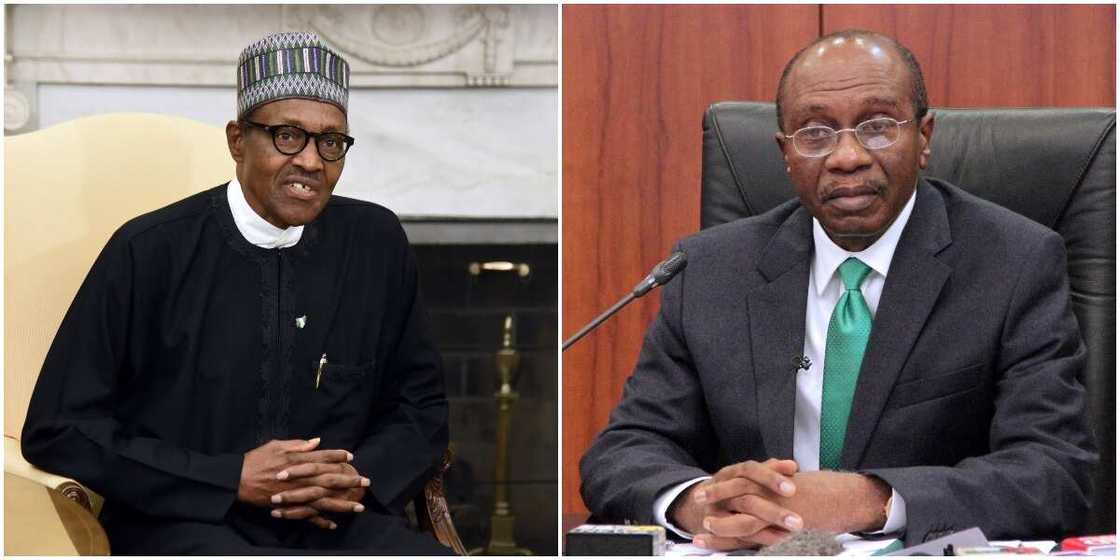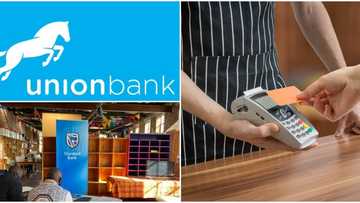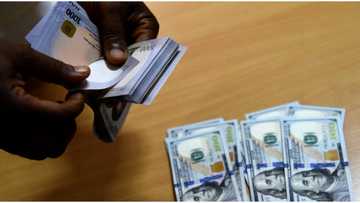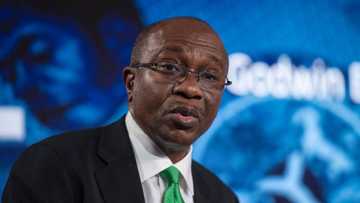How eNaira Will Work: CBN Gives Latest Update to Know About Nigeria's Digital Currency
- The eNaira will be a non-interest bearing currency and won't serve as a hedge to escape inflation which many have used Bitcoin and Ethereum as
- The Central Bank of Nigeria said Nigerians won't be charged by the financial institution for the utilisation of the eNaira through POS or the banks
- Nigerian commercial banks to use codes to register their customers for the Central Bank Digital Currency set for release in October 2021
In July, the Central Bank of Nigeria (CBN) announced that it will introduce the country's official digital currency, more than a month later, the apex bank has released the latest update on the eNaira.
The CBN sent guidelines for the implementation of the eNaira which is scheduled to be launched in October, Nigeria's Independence month.
Latest update on CBN digital currency, eNaira
According to the eNaira guidelines, the first stage of the Central Bank Digital Currency (CBDC) implementation is the Monetary Authority Suite, which instructs that the CBN is the sole issuer and distributor of the eNaira - it also states that the CBN can redeem and destroy the currency.

Source: Getty Images
PAY ATTENTION: Subscribe to Digital Talk newsletter to receive must-know business stories and succeed BIG!
The second stage is the Financial Institution Suite which states the eNaira currency request or issuance of stablecoins and its management will be done by the licensed financial institution.
Who can use Nigeria's digital currency, eNaira?
Nigeria's digital currency is not physical cash, but it will be available to every Nigerian, regardless of class or social standing, however, there's a catch - you must be a bank customer.
In the guideline, the CBN stated that banks will be allowed to onboard their existing or potential customers through pre-generated codes, while some selected customers will be sent an invitation code.

Read also
POS boom: The new banking that caused Union Bank to close branches, Standard Bank to stop building
The onboarding will be done to bank customers that have been validated and verified by the financial institutions licensed to request and supply the eNaira.
Note that customers registered by the banks will not be charged for user-to-merchant transactions and peer-to-peer wallet transactions.
POS merchants to assist banks with eNaira
The POS merchants will continue to play a role in the new phase of finance in Nigeria to help the central bank expand its financial inclusion across Nigeria.
Nigerians will be able to send and receive the digital currency at a merchant kiosk at a low-cost payment, while the digital currency will be deposited in a CBN wallet for the main time.
Commercial banks and other licensed operators are expected to provide their own wallets to serve as a vault and replace that of the CBN once they all complete the implementation.
Government to track transactions of eNaira users
Unlike decentralised finance or bitcoin and other cryptocurrencies, the eNaira will be regulated by the government, as the CBN is expected to store the data on a cloud server, which will lead to monitoring and analysis of the currency transactions by Nigerians.
Licensed Nigerian financial institutions will also record KYC, identify and AML compliance capability across their branches, while the government will process digital payments between citizens and businesses.
eNaira not lucrative: Just another payment option
The eNaira is more of a payment option than a store of value. Nigeria's digital currency is expected to be pegged with the naira and be used for transactions.
The online naira is not risky, as government backing reduces its volatility, but also not extremely profitable like bitcoin, as the value movement will be base on the government's ability to control it through supply.
The digital currency will be non-interest-bearing, hence, users will not be making a dime from eNaira unlike its contemporary in the United States, USDC.
In essence, the eNaira can't be used as a hedge against inflation as cryptocurrencies have been in the last 12 years since Satoshi Nakamoto created bitcoin in 2008.
CBN put cryptocurrency under lock in Nigeria
In related news, Legit.ng had previously reported that Nigeria tops adoption of cryptocurrency in the world according to report.
However, access to cryptocurrency has been blocked or made narrow as Godwin Emefiele, Governor of the CBN outlawed crypto exchange.
Cryptocurrency exchanges like Patricia can't operate in Nigeria as the commercial banks have been told to shut down any account connected to bitcoin, Ethereum or any other unregulated digital currency.
Source: Legit.ng





